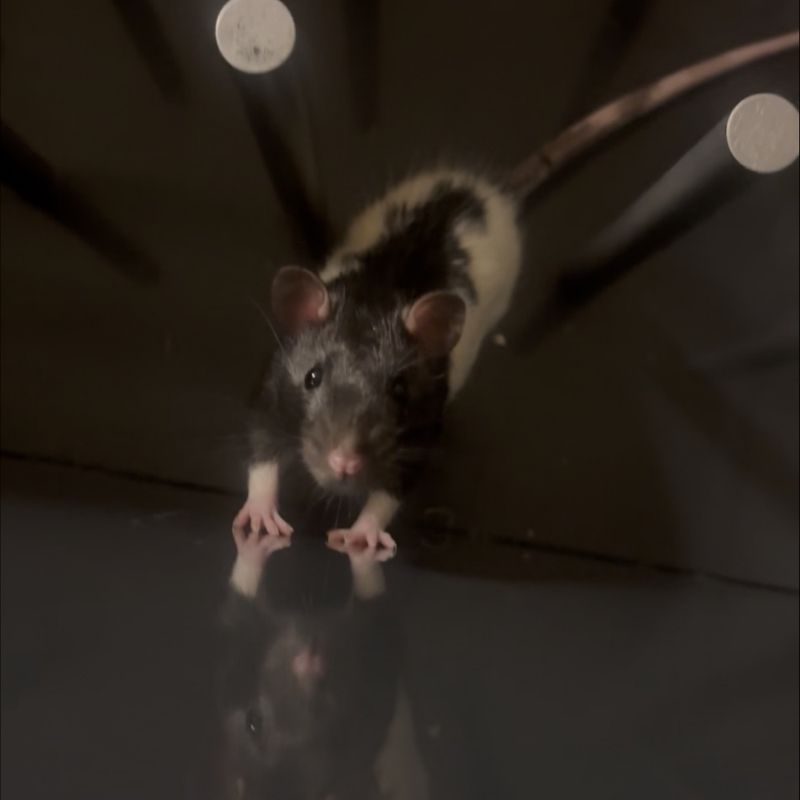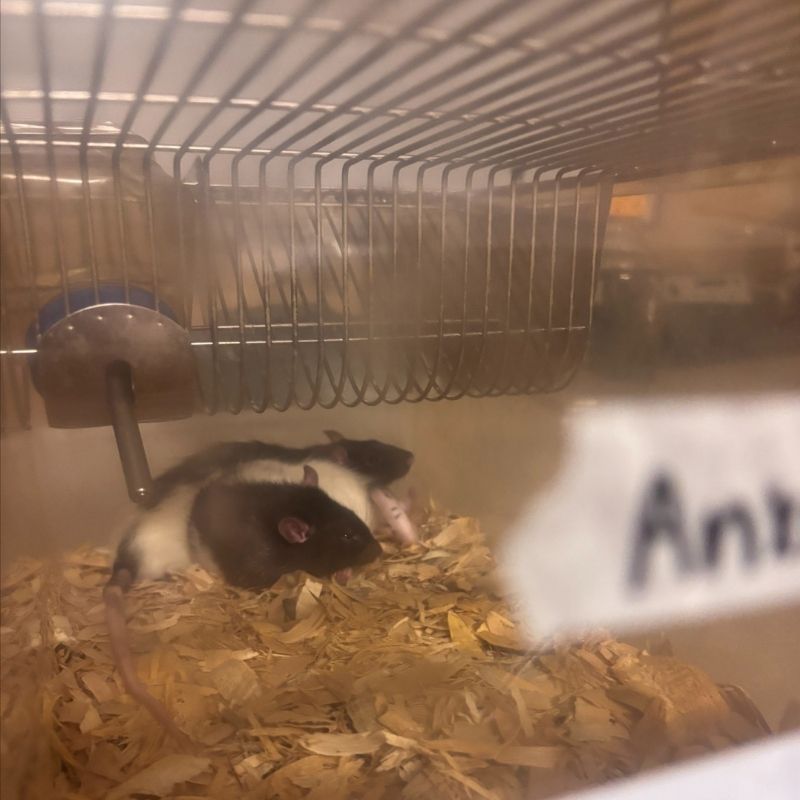Melanie Gonzalez, Erin Johnson study anxiety and exposure therapy in rats during SURFS
Every person on earth has experienced a moment when rational thought is hijacked by anxiety, turning seemingly “simple” choices into a decision rooted in panic.
It is a phenomenon that sophomore neuroscience major Melanie Gonzalez explored this summer during Belmont’s Summer Undergraduate Research Fellowship in the Sciences (SURFS).
Working alongside her research partner Erin Johnson, Gonzalez dove into her research question with the help of a few male rats and everyone’s favorite rainbow-colored breakfast cereal.
The Setup
 Before any rigorous testing commenced, Gonzalez and Johnson spent the first week of their project getting the rats used to human contact.
Before any rigorous testing commenced, Gonzalez and Johnson spent the first week of their project getting the rats used to human contact.
“If they were already stressed from human interaction, we'd never be able to isolate the anxiety variables we actually wanted to study," Gonzalez said.
Once they were comfortable being handled by people, the first of a series of phases kicked off.
Initial trials encouraged rats to freely explore a maze while being fed periodic rewards in the form of Fruit Loops — an apparent delicacy for the rodents.
The team then created a direct path within the maze to Fruit Loops before introducing the core challenge — an intersection offering a short, efficient route to a reward and a longer alternative path to the cereal.
Predictably, the rats quickly developed a preference the shorter path. Next, Gonzalez and Johnson wanted to put this preference to the test.
Introducing The Anxiety Variable
To induce anxiety, Gonzalez and Johnson confined rats in restraining tubes to create a stress association between the rats and tubes. The tubes were then placed along the easy path in the maze to see if the rats would avoid the path.
 When most walked through with no concern, the two added peppermint oil to the tube to exploit their heightened sense of smell. The seemingly minor adjustment transformed the experiment.
When most walked through with no concern, the two added peppermint oil to the tube to exploit their heightened sense of smell. The seemingly minor adjustment transformed the experiment.
“Once we added the oil, we noticed it definitely made a difference,” said Gonzalez. “A lot of them started going the longer route.”
The Power of Exposure Therapy
Finally, the two tested whether they could reverse the anxiety-induced behavior through exposure therapy.
Before the rats were removed from their cages, the restraining tubes were placed in the cage with them, allowing the rats to explore the once-threatening objects freely and at their leisure.
The researchers returned the tubes to the maze’s easy path, the same setup that previously sent the rats scurrying down the longer path out of fear. However, many now confidently walked through the tube to snack on the Fruit Loops.
The tubes that once triggered avoidance had been transformed into a neutral obstacle through stress-free exposure.
Broader Implications
Gonzalez and Johnson’s findings indicated that exposure therapy effectively reduces anxiety in rats and improves decision-making confidence. More significantly, the work provides support for exposure therapy approaches in human anxiety treatment. 
“There’s a strong correlation between rats and us,” said Gonzalez. “They’re very similar to us and very smart which is why they are often used in psychology and neuroscience testing.”
Looking ahead, the team will examine brain structures from their test subjects to understand how anxiety testing affected neural pathways.
Researching as an Undergraduate Student
Gonzalez emphasized the value of Belmont's undergraduate research program, particularly its focus on providing opportunities to underclassmen. The supportive environment allows students to develop genuine scientific skills while building confidence in their abilities.
“I love that Belmont gives us the opportunity to get out there and see what research is like, and maybe open some new doors for ourselves,” she said.
Despite dealing with imposter syndrome at times in the lab where she questioned her lack of lab experience, reassurance from her group advisor, Dr. Timothy Schoenfeld, and overcoming obstacles helped solidify her confidence in herself.
For prospective student researchers, Gonzalez offers straightforward advice.
“It’s challenging, but very rewarding — go for it no matter what,” she said. “And don’t pick a project based only on your major. Research something that interests you because you can learn a lot from different fields of science.”
Learn More
Learn more about undergraduate research at Belmont.

